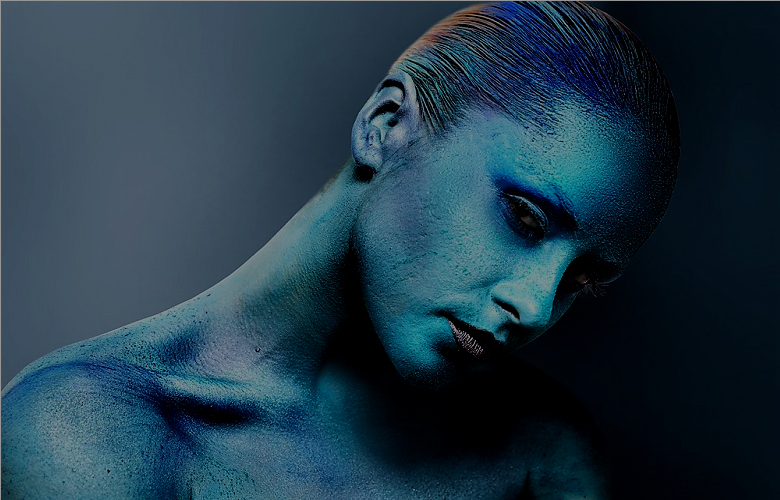
People typically have some kind of reaction when the subject of competition dancers comes to light. Some people love them, some people hate them. Some think they are great fun. Many think they butcher the learning process that should include stepping stones to building solid technique. Love them or hate them, the dance competition industry is bigger than ever. Let’s discuss why dance competitions could better prepare dancers for successful auditions.
Dancers often start competing at a young age. Performing becomes second nature as they hone their skills in front of a live audience. By the time a competitive dancer is a teen, they have tonnes of on-stage performance experience. They instinctively deal with any problem that may occur in the moment. Costume and prop malfunctions, sound problems, partnering mishaps…you name it! Competitive Dancers can deal with it in the moment. Experience taking convention style classes also help dancers learn from new choreographers, and perform quickly, on-the-spot.
Competitive dancers, at one time or another, find themselves dealing with nerves. They may be anxious because of having new and difficult technical elements in their routines. They may be competing against very talented performers. They may have a special someone in the audience they want to impress.
Regardless of the reason, competition dancers know they need to get out of their own way to get the job done. A competitor learns to clear the mind and focus, without wasting time.
They deliver the goods, to the best of their ability, under any circumstances, in any situation.
There are numerous genres of dance, and competitive dancers often compete in many of the following styles: Ballet, Ballroom, Contemporary or Modern, Jazz, Hip-Hop, Tap, Acro and Contortion, and Musical Theater. There are also other folkloric styles explored. Most dancers hit many of the categories. Even if dancers are competing in less comfortable styles that do not come naturally, they know their job is to do their best to make it look professional.
Many routines performed in dance competitions are choreographed to challenge young dancers stylistically. Competitive dancers are pushed out of their comfort zone, each and every year. By the time these experienced dancers are auditioning for college dance departments or professional jobs, they have most likely performed numerous styles of dance. Picking up choreography is much easier to someone who has years of experience performing many different styles.
Most dancers in the competitive arena perform in group routines, and many perform alone. Solo performers learn about themselves as dancers and performers. They learn to accentuate assets, and work on weaknesses. These individuals learn to rely solely on themselves. Numerous auditions require dancers to perform alone in some capacity. This is a breeze to anyone who has been performing solo for years. Each dancer is a one-man-band in the audition room. No time to look around or depend on others. An experienced solo performer is a wiz when it comes to his or her time to shine!
Everyone knows that the results of a dance competition are based on the opinions of (usually) three or five judges. Adjudicators all have different opinions, and on another day, with a different panel of judges, the results would surely be different. Competitors quickly learn what they do and do not have control over. They do have control over how hard they work, and how well they perform. They do not have control over how others, including judges, see them.
Professional dancers know that dealing with rejection is part of the business and life of a dancer.
Competitors have learned to take criticism through listening to audio critiques of judges. These dancers have lived a life of being “liked” some days more than others. Competitive dancers are extremely resilient and look forward to the next opportunity to prove themselves.
These stellar qualities are developed in dance competitions best if young dancers are led by conscientious leaders. Teachers, choreographers, and parents have a tremendous amount of power in the outcome of the entire experience. If leaders have a healthy prospective of the dance competition world, magic happens. Obsessive teachers or overbearing stage moms may present a very different experience. Regardless, it is fair to say competition dancers do have an advantage in auditions, and maybe the professional world in general, based on their history of competitive performance experience.
Starting A Dance Career: 5 Reminders From Your Dance Mom
Freelance Artist Gig Life: Do Something


Author Jill Ann Wolins started dancing as a child and continued competitively at the age of 9. She extended her dance education at the State University of New York in Buffalo, receiving her BFA as a dance major. Jill was awarded numerous scholarships for dance including Duke University American Dance Festival (ADF), Giordano Chicago, and six years at Steps on Broadway, NYC, which aided her transition into the professional dance world. Her professional dance career started with Disney, Orlando. Jill continued as a NYC Radio City Rockette for ten years. Broadway National tours include The Producers and Will Rogers Follies, and regional tours include Sweet Charity and Grease! TV and Film credits include The Producers, David Letterman (CBS), Disney Christmas Special (ABC), and Radio City Christmas Spectacular holiday commercials. Some of Jill’s favorite credits include assisting the choreographer, John Dietrich, for the opening segment of the Macy’s Thanksgiving Day Parade, performing in tribute to Lena Horne at Lincoln Center, and dancing with Chita Rivera at the Kennedy Center, DC. Some international dance and teaching experiences include appearances in China, Japan, Russia, UK, Australia, and the United Arab Emirates. Jill Is proud to have worked with the United Nations Association in HIV/AIDS affected areas of South Africa. Jill currently travels across the country and around the globe teaching master classes and setting choreography. She is currently a faculty member of the Wild Dance Intensive and Power Pak Dance Camp. Jill teaches the Top Gun Audition master classes at Starpower National Competitions and co-hosts prestigious dance events like the World Dance Championships. Because Jill values guidance and education for young dancers, she also enjoys being co-director of the World Dance Pageant. Jill is thrilled to share her books in the “Are You Ready?” series. “Dance Competitions: Are You Ready?” is perfect for young competitive dancers, guiding them to have the best, most successful experience possible. “Dance: Are You Ready for the Next Step?” is a must read for all dancers that want to dance in college and beyond, preparing them to be successful in the professional dance world. Jill is proud to be a part of the dance community in TheatreArtLife. We are an international community of dancers and artists, united through our love and passion for dance!
Read Full Profile© 2021 TheatreArtLife. All rights reserved.

Thank you so much for reading, but you have now reached your free article limit for this month.
Our contributors are currently writing more articles for you to enjoy.
To keep reading, all you have to do is become a subscriber and then you can read unlimited articles anytime.
Your investment will help us continue to ignite connections across the globe in live entertainment and build this community for industry professionals.